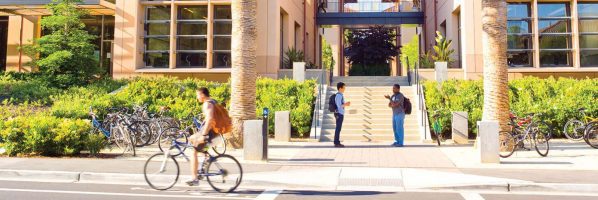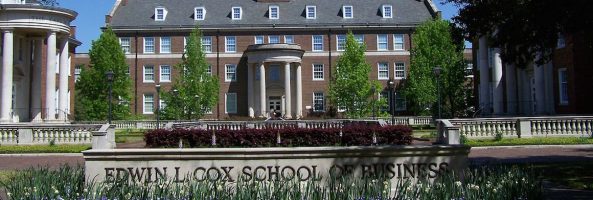Stanford Hosts Future of Work Symposium

The recent Stanford “Future of Work” symposium, co-presented by Stanford Career Education and OZY EDU, explored a number of topics related to a changing labor force in the face of automation, and what a more expansive definition of continuing education might entail.
Coursera CEO Jeff Maggioncalda SGSB ’96 and one of the panelists, believes that college degrees “will remain useful to build fundamental skills,” but that even college-educated members of the labor force “will be expected to continue their education throughout their careers” in order to stay competitive.
This is especially true for graduates with humanities and social science degrees, whose knowledge, according to Stanford’s Senior Vice Provost for Education Harry Elam, Jr. remain crucially important to helping industry “understand biases in data, facilitate collaboration, bring insight, provide historical perspective, and humanize technology in a data-driven world.”
GSV Asset Management co-founder Michael Moe believes that humanities and social science graduates can help us augment “the three R’s” with “the four C’s”: critical thinking, communication, creativity, and cultural fluency.
MindSumo co-founder and current Stanford GSB student Trent Hazy believes people with humanities and social science can “easily develop transferable skills that employers value. Humanities majors who also learn some quantitative skills by taking classes in statistics or logic will have an advantage over those who don’t.”
Coursera VP and Stanford GSB ’10 grad Julia Stiglitz believes startups like hers open up “educational opportunities … to anyone who has the will and desire and ability to go through it, and as a result I think we’re going to see all sorts of new people come into fields they otherwise wouldn’t have access to.”
When it comes to the projected 2030 obsolescence of half of today’s jobs by automation, all the speakers firmly believed that technology will create “new economic opportunity” in the long-term. Moe concludes: “While automation eats jobs, it doesn’t eat work.”
Interview With The Dean: SMU Cox School of Business

Since 1997, Albert W Niemi, Jr. has served as the Dean of the Edwin L. Cox School of Business at Southern Methodist University (SMU Cox) in Dallas. He is also currently the Cox School’s Tolleson Chair in Business Leadership, as well as the William J. O’Neil Chair in Global Markets and Freedom.
During his tenure, the Cox School has undergone many changes. He has helped to expand the degree offerings at the business school—expanding the school’s offerings to include four specialized master’s programs as well as multiple interdisciplinary program opportunities and a new Fast-Track MBA—and has also grown the school’s endowment from $78 million to more than $200 million.
This past August, Dean Niemi announced his intention to step down as Dean after serving the Cox School for more than twenty years. He will continue to remain in his faculty position, but will pass on his administrative responsibilities to Matthew B. Myers, a global marketing and strategy expert with expertise in Latin America who currently serves as dean of the Farmer School of Business at Miami University, Ohio.
To mark the occasion, we took the opportunity to interview Dean Niemi about his tenure as Dean and to gain his insight into what the future of the Cox School could look like. Continue reading…
